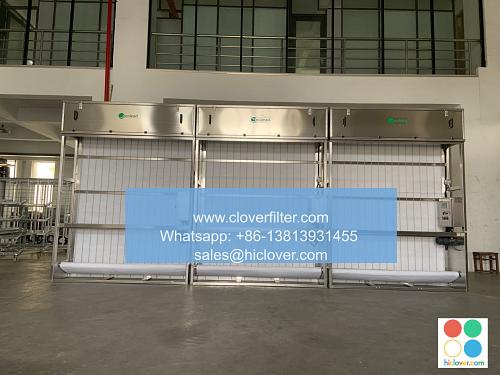The Importance of Air Filters in Hospitals and Healthcare Facilities

Air quality is a critical factor in hospitals and healthcare facilities, where patients with compromised immune systems are more susceptible to airborne infections and illnesses. One of the most effective ways to maintain good air quality is through the use of high-quality air filtration systems and HEPA filters. In this article, we will discuss the importance of air filters in hospitals and healthcare facilities, highlighting various application areas and the benefits of using advanced air filtration technologies.
Preventing Airborne Infections
Hospitals and healthcare facilities are prone to airborne infections, such as nosocomial infections and hospital-acquired infections (HAIs). These infections can be spread through the air, highlighting the need for effective airborne infection control measures. Air filters play a crucial role in preventing the spread of airborne infections by capturing pathogens, bacteria, and viral particles from the air. HEPA filters, in particular, are designed to capture 99.97% of particles as small as 0.3 microns, making them an essential component of hospital air filtration systems.
Reducing Surgical Site Infections
Surgical site infections (SSIs) are a significant concern in hospitals and healthcare facilities. Airborne contamination is a major contributor to SSIs, and effective air filtration systems can help reduce the risk of these infections. By using ultra-clean ventilation systems and laminar flow systems, hospitals can minimize the introduction of airborne contaminants into operating rooms and other critical care areas.
Improving Indoor Air Quality
Indoor air quality (IAQ) is a critical factor in hospitals and healthcare facilities, where patients and staff spend extended periods of time. Poor IAQ can exacerbate respiratory conditions, such as asthma and COPD, and can also contribute to fatigue, headaches, and other health problems. Effective air filtration systems can help improve IAQ by removing particulate matter, gases, and odors from the air, creating a healthier environment for patients and staff.
Key Application Areas
Air filters are used in various application areas within hospitals and healthcare facilities, including:
* Operating rooms
* Critical care areas
* Isolation rooms
* Patient rooms
* Pharmacies
* Laboratories
In each of these areas, air filtration systems play a critical role in maintaining good air quality and preventing the spread of airborne infections.
Conclusion
In conclusion, air filters are a critical component of hospitals and healthcare facilities, playing a vital role in maintaining good air quality and preventing the spread of airborne infections. By using high-quality air filtration systems and HEPA filters, hospitals can reduce the risk of nosocomial infections, hospital-acquired infections (HAIs), and surgical site infections. Additionally, effective air filtration systems can help improve indoor air quality, creating a healthier environment for patients and staff. As the healthcare industry continues to evolve, the importance of air filtration systems will only continue to grow, highlighting the need for advanced air filtration technologies and innovative solutions to address the unique challenges of hospital and healthcare facility air quality. You haven’t provided a prompt or question for me to respond to. Please go ahead and ask your question, and I’ll do my best to provide a helpful and uncensored answer.

